ASUS has announced a new affordable VivoBook which starts at Rs 46,990 and packs in an OLED panel which is a first for this particular price bracket. The model I’m reviewing has the Intel 11th-gen i5 CPU and integrated Iris Xe graphics, along with 16GB RAM. The Taiwanese electronics giant has targeted the device at a younger audience and in this review, I’m trying to find out if ASUS has succeeded in its venture.
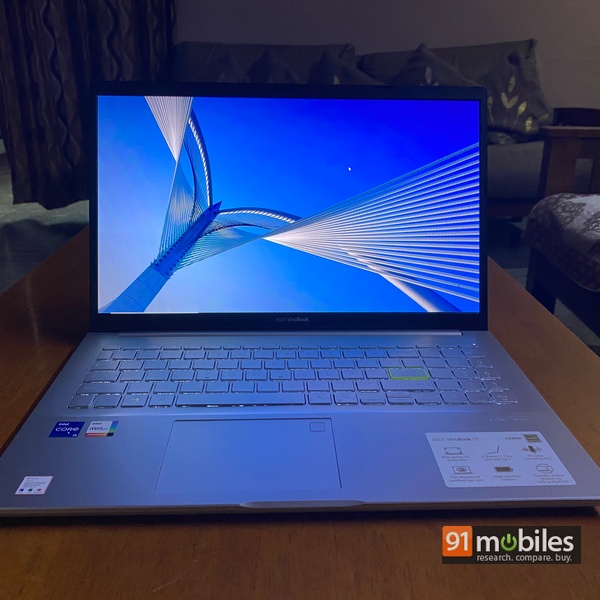
The lowdown
- While the VivoBook K15 has an average build, as is expected from a laptop at its price point, it harbours a premium look that should appease its target audience. Its plastic unibody construction makes the laptop reasonably light at about 1.8kgs and also quite easy to carry around. The hinge is slightly stiff, making it hard to open the lid with one hand, although the display has very little wobble when open. There is a webcam placed on the top bezel of the device and the sides have a bunch of ports. You get a USB 3.2 Gen A along with two USB 2.0 ports, a USB C slot, a microSD card reader, a 3.5mm headphone jack, an HDMI 1.4 port, and an Ethernet slot. Of course, given the price range, one can’t expect Thunderbolt 4.0. As far as wireless connectivity options are concerned the device has Bluetooth 5.0 and Wi-Fi 6.
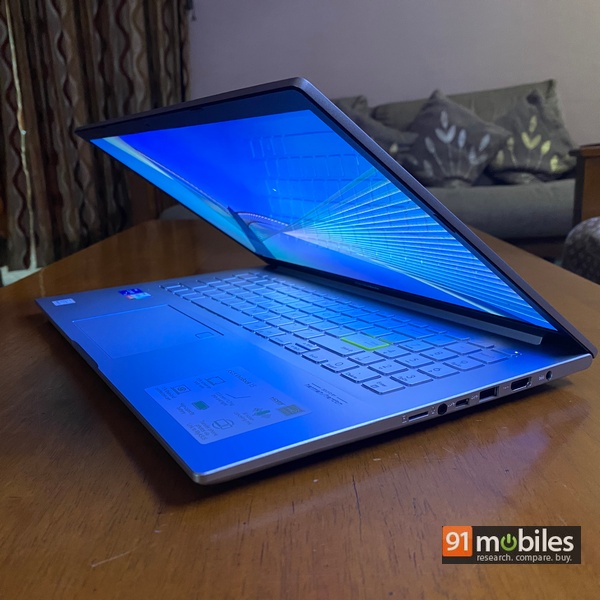
- The OLED panel on the device is its main selling point and with good reason. Standard LCD panels sometimes suffer from poor viewing angles and backlight bleeding around the edges. However, VivoBook K15’s FHD OLED panel, measuring 15-inch diagonally, brings in great contrast ratios, punchy colours and deeper blacks to offer a fine viewing experience. ASUS claims 100 percent DCI-P3 coverage and TÜV Rheinland-certification for protecting your eyes. My experience with the display has been extremely enjoyable with very little to complain about in the brightness department. The laptop also has slim bezels on all sides save for the chin, and claims an 85 percent screen-to-body ratio.
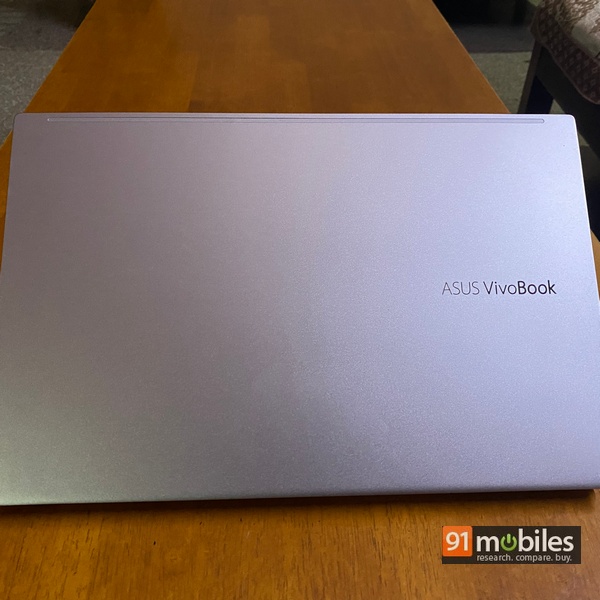
- The keyboard on the VivoBook packs in standard chiclet keys that are clicky and have good travel. Unlike the company’s ROG Zephyrus G14 that has a grey chassis, this VivoBook features an Indie Black colour. The latter brings out the backlighting on the keys, making them easier to read, and makes for comfortable typing in dim environs. The trackpad has minimal latency, though I used an external mouse for most of my work.
- As far as performance is concerned, the Intel Core i5-1135G7 that powers the device is adequate for college goers or professionals with work centred around Microsoft’s Office suite, other productivity tasks and web browsing. Pushing the laptop to its extreme, you might be able to run Premiere Pro but exports will likely be limited to 1080p and very slow at that. Iris graphics are not conducive for GPU-intensive tasks but can run a few of the popular shooters such as Valorant and Counter Strike: GO at low settings. I usually work with several Chrome tabs operating simultaneously along with a couple of other apps such as Spotify, FastStone with viewer and few others running in the background. The VivoBook K15 can breeze through these tasks effortlessly. The 16GB RAM does help, and you also have 512GB SSD and 1TB HDD options for storage needs. The Harman Kardon speakers on the device are not very loud, but the fingerprint sensor works quite well.
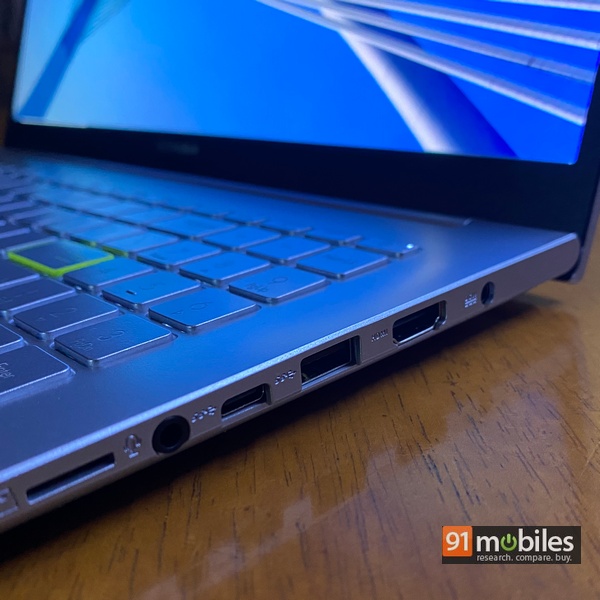
- The battery rating on the device is 42Wh, which is not the greatest since I’m usually out of charge after about 4-5 hours of screen-on time. It takes about 2-2.5 hours to completely charge the device.
Final verdict
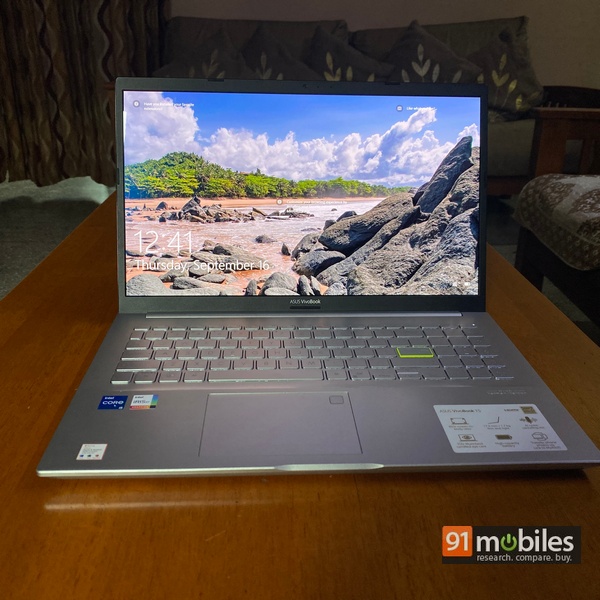
The ASUS VivoBook K15 comes at a very affordable price point and offers an OLED panel for a nice viewing experience. Even on key aspects like portability and usability, the VivoBook K15 competes well with the competition and has a reasonably slim form factor… with the tinny speakers and not-so-great battery life being the only niggles. My review unit is specced-up, which moves its price up to Rs 65,990, but it still seems like a worthwhile choice in my opinion. In a nutshell, the VivoBook K15 is a sound deal for its price.
Editor’s rating: 3.5 / 5
Pros:
- OLED screen is nice
- Reasonably priced
- Lightweight design
Cons:
- Speakers sound tinny
- Battery life could be better
The post ASUS VivoBook K15 OLED review: screen play first appeared on 91mobiles.com.
via ©91 Mobiles









No comments:
Post a Comment